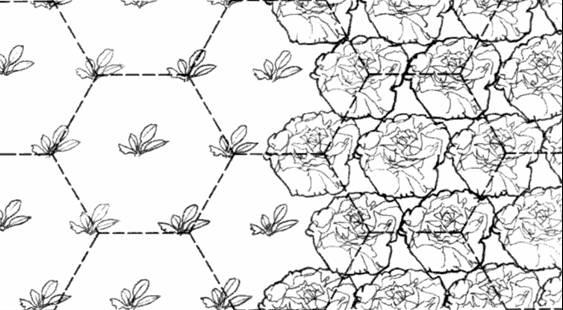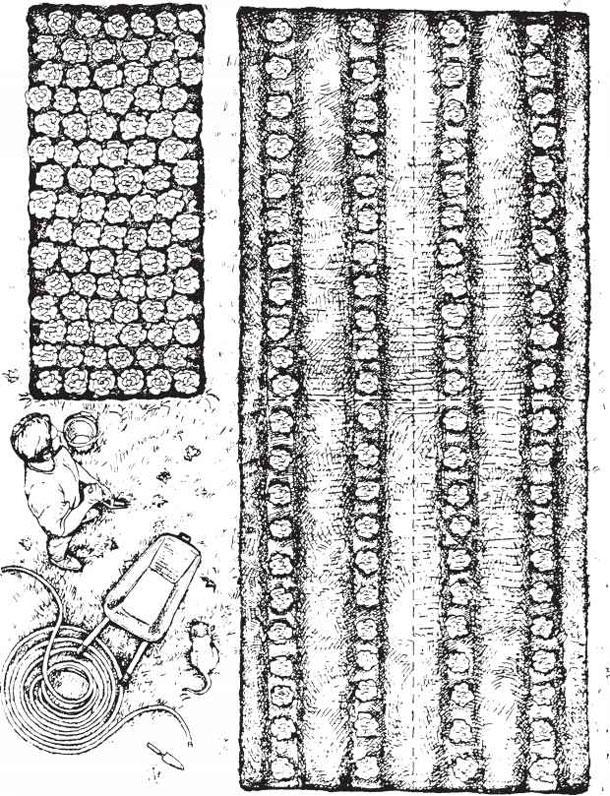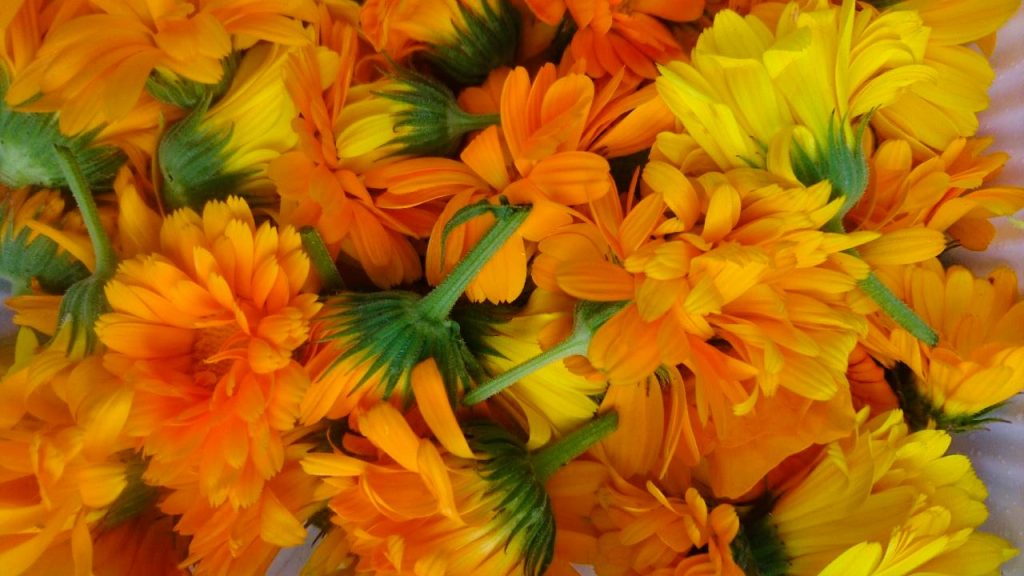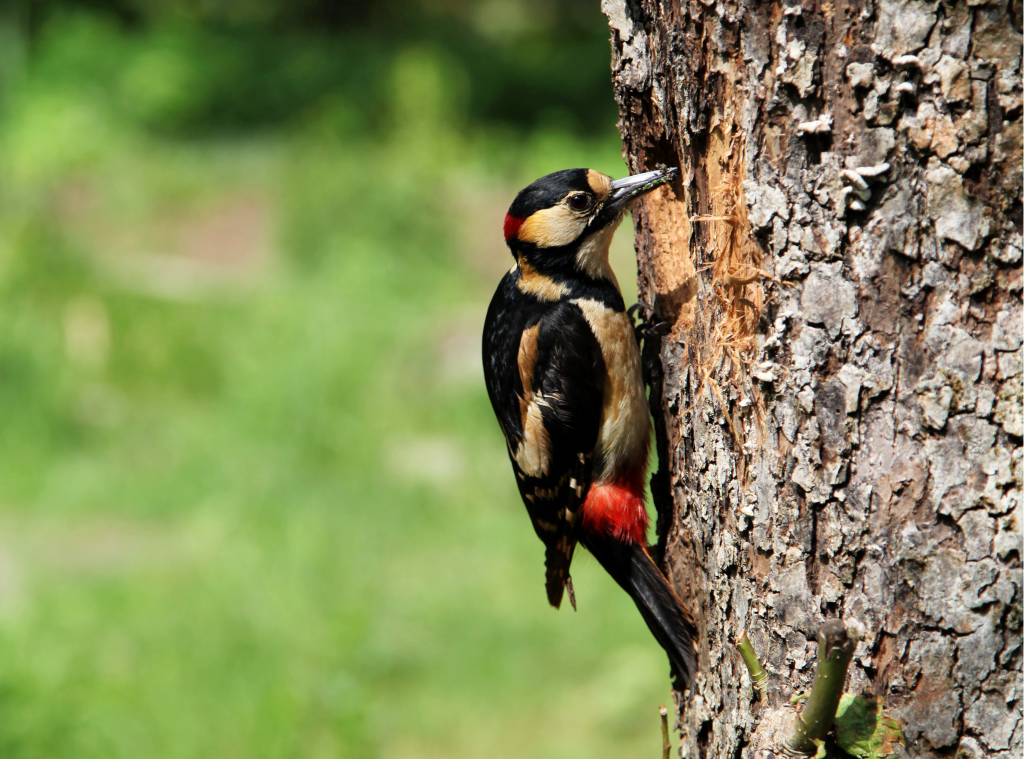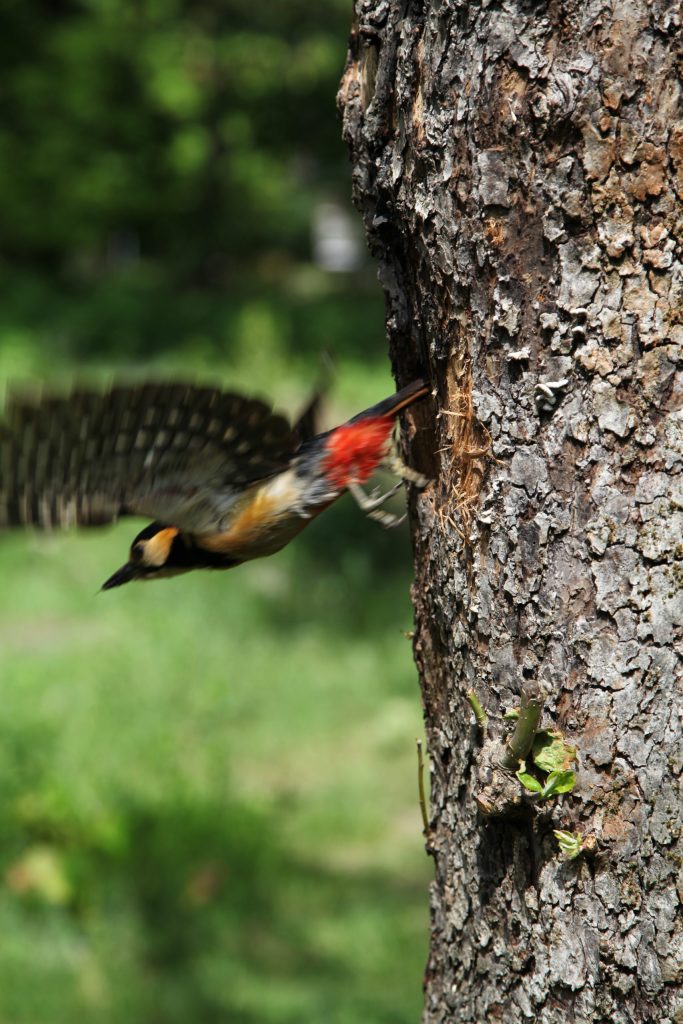(Image from How To Grow More Vegetables by John Jeavons)
I recently went through two of my gardening books to get some tips, I wanted to share quickly the results. Why did I do this? Well, there are some things in our garden which we could learn from!
The first book is How To Grow More Vegetables by John Jeavons, originally published in the 1970s, the biointensive farming method it explains is widely used (the book is now in it’s 8th edition). The second book is Introduction to Permaculture by Bill Mollison, who is the co-founder (mitgruender) of the permaculture movement.
Soil (Boden, Erde)
Jeavons tells us to ’stop growing crops (feldfrucht, ernte) and start growing soil‘. The reason is that by building soil, we are then able to grow more vegetables, but more importantly, that the soil is healthy and fertile (ergiebig) for future seasons. It takes several years to build good soil, but there are some things we can start doing:
– Growing compost crops, and green manure (Duenger)
– Stopping water and wind from eroding (erodierend) the soil
Growing more compost crops
Lots of plants, like tomatoes, like to ‚eat‘ nitrogen in the soil, and over a season or two, this means unfertile soil without nitrogen. But plants like clover (klee), peas (erbsen) and beans (bohnen) are in the legume family (Hülsenfrüchte). Legumes help to fix nitrogen (Stickstoff) into soil. So growing legumes helps to balance the soil.
Plants like grains (Getreide) should be composted to put carbon (kohlenstoff) back into the earth.
The Jeavons book recommends using 60% of the beds (beete) for growing compost crops like grains and legumes! They recommend only 10% of the space for salads, and 30% for root (wurzel) crops, such as potatoes, radishes, and carrots.
In our garden, we grow perhaps too much salad, and if you think about it, most of the salad when it is harvested is taken away from the garden and eaten at home. This means any waste is not being composted at the garden. It’s the same with all other vegetables we are growing.
So we might need to set aside some beds where only compost crops are grown. Before these plants start to flower, they should be dug into the soil, or added to the compost.
Or, we can mix plants within beds, so that plants which are hungry for nutrients (Nährstoff) are in the same bed as plants which give nutrients. The Drei Schwester Beet is one such bed (the beans give Stickstoff to the corn and pumpkins).
We can also do things like planting clover (Klee) in empty beds, after a crop has been harvested.
Caring for soil also means less pests on our plants, because healthy soil means healthy plants.
Stopping water and wind from eroding (erodierend) the soil
We actually have a pretty big problem in the garden right now, because if you look around at the beds, there is so much bare soil (nackt erde) in all the beds.
This means erosion, but also, it means that we have to water (giessen) a lot more than we should!
The easy and quick way to fix this is to add mulch over the beds. After the lawn is mowed (Rasen gemaeht) we can let the cut grass dry a little, then add it as mulch.
The better and long-term way is plant seeds a bit differently. We plant in rows, and in the Jeavons book, they say this is inefficient.
It’s better to plant in hexagons! If we have more fertile soil, then we can plant our crops closer together:
Jeavons recommends, when planting seeds, to follow what the seed package says for ‚distance between plants‘ (abstand zwischen pflanzen) but to IGNORE the distance between rows (abstand zwischen Reihe).
Result (ergebnis): when the plants are grown, the leaves from each plant will slightly touch each other, and this a) protects the soil from wind and sun, b) helps to save water because there is moisture (feuchtigkeit) underneath the leaves, and c) means less weeding (weniger unkraut Jaeten) because the weeds can’t grow as easily in shade.
So, the main points for us in the garden:
– Grow soil, not veggies. Concentrate on composting, growing green manures (clover), and mulching.
– Bare soil is damaged soil. Make sure plants are spaced to reduce bare soil, and aim to get a living mulch)
—
In case anyone is interested in the broader issue of ‚peak soil‘, see here:
The Jeavons book has a statistic that ’normal agricultural practices deplete (abbauen) the soil 18 to 80 times faster than nature can rebuild it‘. But the Jeavons book was originally written in the 1970s, so I found an up-to-date scientific document, see the first paragraph of this: http://bit.ly/f5m4wI.

